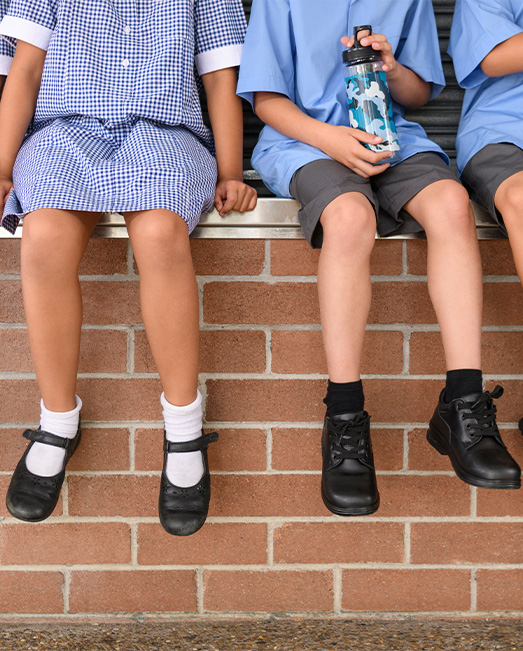Community
Copyright@ Australian Catholic University 1998-2026 | ABN 15 050 192 660 CRICOS registered provider: 00004G | PRV12008
Copyright@ Australian Catholic University 1998-2026 | ABN 15 050 192 660 CRICOS registered provider: 00004G | PRV12008

From your child’s first day of school to their last, making friends can be the best – or worst – part of their experience. Whether your child is about to start prep or looking forward to their high school graduation, we spoke to some education experts for tips to help your children develop positive social skills and lasting friendships.
They may be small in stature, but children entering prep have big lessons to learn about friendships. Laurien Beane, an early childhood and primary education lecturer at ACU, believes laying the groundwork for building relationships is already underway at this age.

“Children in prep begin with the foundations of friendship skills,” she said. “This means they can be taught skills such as using kind words, being supportive and encouraging, showing self-control, being empathetic, using positive body language and being thoughtful and considerate of others. These skills are still developing for a child at this age, but the ones who can demonstrate these abilities are more readily able to make friends.”
While some of us might remember playing almost exclusively with children of our own gender in the early years at school, for those entering prep now, times have changed.
“We need to consider that gender is no longer a male/female binary and children as young as prep can feel isolated if they feel they do not fit neatly into one of these categories,” Laurien explained.
“It's important for children to learn friendship skills so everyone can feel included, regardless of what gender they identify as.”

For parents worried about their prep child fitting in, Laurien said a good approach is helping them keep their options open. “Ensuring your child has a broad range of interests will assist them to make friends with a broad range of children.”
When children are ready to enter their high school years, it’s natural for parents to feel concerned about their friendship circles, especially if their younger years were troubling.
“Some students come to high school with less confidence about social interactions,” said ACU education lecturer Michael Chambers. “Sometimes these students have experienced many or all of the primary years in a form of social isolation. Each of those years can serve as a spiral into further isolation: they become less confident, less assertive and, seemingly, less practiced in the skills of social interaction.”

For high school students keen to seek out new friends, Michael believes confidence will take them far. “Sometimes confidence, even if it is a bit contrived, can attract others,” he said. “But it's important to know that showing assertiveness is different to aggressiveness. Aggression sometimes manifests itself in bullying, while assertiveness is showing respectful, polite caring of others.”
For parents who are worried about their kids falling in with the so-called wrong crowd, Michael reminds us that things are always changing for this age group.
“It's likely that your high schooler’s circle of friends will be quite fluid,” he said.“Parents will do well to maintain an ongoing conversation with their kids about who they’re hanging out with and it’s good to ask yourself if you know who their friends are.”
“I think keeping in touch with your child’s teachers is important too,” Laurien adds. “This should start in primary school and keep going all through their high school years.”

“Otherwise, parents should keep their eyes out for signs of withdrawal,” said Michael. “Look for an unwillingness to discuss friendships and core social skills, such as ensuring they look people in the eye and know how to say hello and greet others.”
Laurien Beane and Michael Chambers are both lecturers in ACU’s National School of Education. Keen to learn more about education at ACU? Explore our courses.
Copyright@ Australian Catholic University 1998-2026 | ABN 15 050 192 660 CRICOS registered provider: 00004G | PRV12008